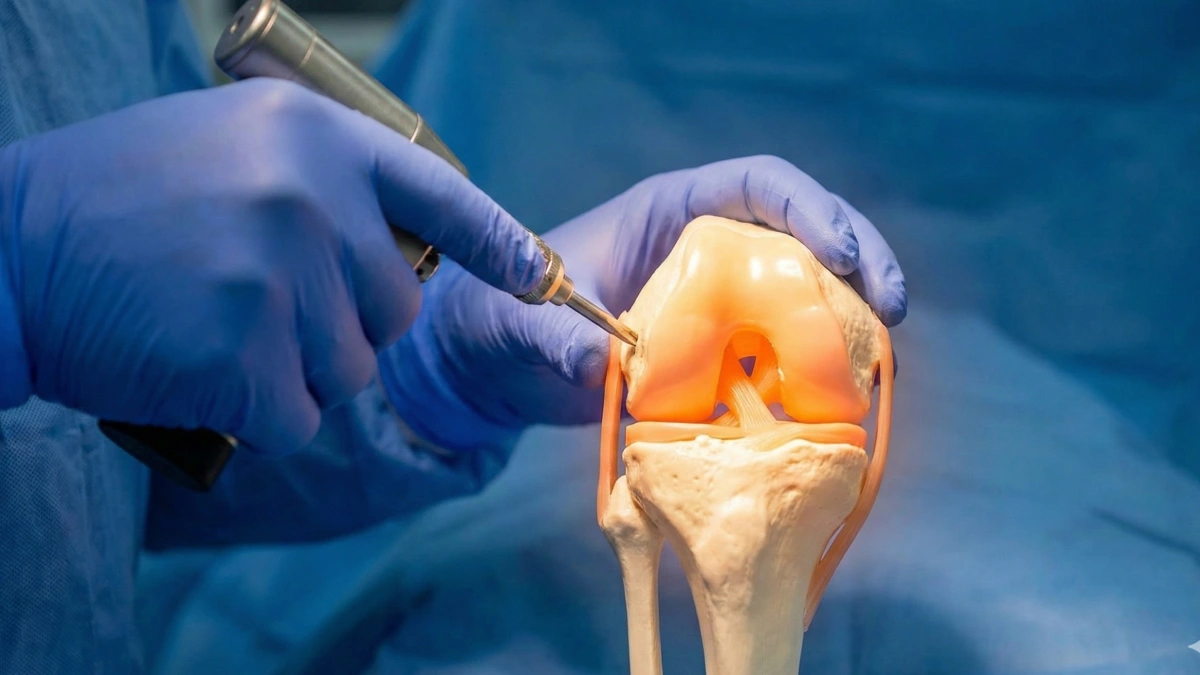Ankle ligament reconstruction in Turkey offers a comprehensive solution for those suffering from chronic ankle instability, providing patients with access to highly skilled surgeons and advanced medical facilities. This article details the intricacies of the procedure, its benefits, and why choosing surgery in Turkey could be advantageous.
Understanding Lateral Ankle Ligament Reconstruction
Lateral ankle ligament reconstruction, commonly known as the Broström procedure, is aimed at tightening and firming ligaments on the ankle’s outside. These ligaments are crucial for stabilizing the ankle joint, especially after repeated sprains or in cases of chronic instability. The procedure typically involves outpatient surgery, allowing patients to return home the same day, significantly enhancing recovery time.
When Is Lateral Ankle Ligament Reconstruction Required?
Patients may require lateral ankle ligament reconstruction due to chronic ankle instability resulting from loosened or stretched ligaments. This condition often leads to repeated ankle sprains, chronic pain, or the ankle giving way during movement. Various foot deformities like hindfoot varus, plantar flexion of the first ray, or high arches can predispose individuals to this instability. Surgery is recommended only after conservative treatments, such as physical therapy and foot inserts, have proven ineffective.
Risks Associated with Lateral Ankle Ligament Reconstruction
While ankle ligament reconstruction surgery generally results in positive outcomes, it carries inherent surgical risks. These include:
- Excess bleeding
- Nerve damage
- Infection
- Stiffness in the ankle joint
- Blood clots
- Anesthetic complications
- Potential failure to improve ankle stability
Patients should discuss these risks with their healthcare providers to understand their likelihood based on individual health factors.
Preparing for Surgery
Proper preparation is vital for a successful surgery and smooth recovery. Patients are advised to halt blood-thinning medications and refrain from smoking before the procedure. They should inform their healthcare provider about all medications and any changes in health, such as a fever. Pre-surgery imaging tests like X-rays or MRI scans are often necessary. Adequate home adjustments and planning for postoperative care should also be arranged.
The Procedure of Lateral Ankle Ligament Reconstruction
Performed by an orthopaedic foot surgeon, the surgery usually lasts two or more hours, during which the patient is under general or regional anaesthesia. The surgeon makes an incision to access and repair the damaged ligaments, possibly using minimally invasive methods. Incisions are closed with stitches, and patients are given pain relief post-surgery.
Post-Surgery Recovery and Care
Recovery involves monitoring and managing pain with medications. Patients are advised to keep their legs elevated to reduce swelling and use crutches to avoid weight-bearing for a few weeks. Follow-up visits are essential to remove stitches and monitor healing progress. The transition from a splint to a boot and eventually to a removable brace marks the recovery stages. Physical therapy may be recommended to regain strength and stability. Ankle ligament surgery recovery time typically allows for a return to normal activities within 12 weeks
Long-Term Impact of Ankle Ligament Reconstruction Surgery
Complete recovery generally allows patients to resume normal activities, including high-impact sports, 12 weeks post-surgery. The procedure significantly enhances ankle stability, reducing the likelihood of future sprains. It also facilitates wearing heeled shoes, although prolonged use should be approached cautiously to avoid foot damage.
Pros and Cons of Ankle Ligament Reconstruction Surgery
Pros:
- Improved Ankle Stability: The primary goal of ankle ligament reconstruction surgery is to tighten and repair the damaged ligaments, restoring stability to the ankle joint and reducing the risk of future sprains or instability.
- Reduced Pain and Discomfort: By addressing the underlying cause of chronic ankle instability, the surgery can effectively alleviate persistent pain and discomfort associated with the condition.
- Increased Mobility: With a stabilized ankle, patients can often return to their normal activities, including high-impact sports, within 12 weeks after the surgery.
- Cost-Effective in Turkey: Undergoing the procedure in Turkey can be significantly more cost-effective compared to many Western countries, making it a viable option for patients seeking quality care at a lower price.
- Access to Experienced Surgeons: Turkey has a growing reputation for providing excellent orthopaedic care, with access to highly skilled surgeons who specialize in ankle ligament reconstruction.
Cons:
- Surgical Risks: As with any surgical procedure, ankle ligament reconstruction carries inherent risks, such as excess bleeding, nerve damage, infection, and potential complications from anaesthesia.
- Prolonged Recovery: The recovery process can take several months, with patients typically needing to use crutches and wear a cast or boot for the first few weeks, followed by a gradual return to normal activities.
- Potential for Failure: In a small percentage of cases, the reconstructed ligaments may fail, requiring additional surgery or other interventions to address the instability.
- Temporary Stiffness: Some patients may experience temporary stiffness in the ankle joint following the surgery, which may require physical therapy and additional rehabilitation.
- Lifestyle Adjustments: Patients may need to make temporary adjustments to their daily activities and lifestyle during the recovery period, such as avoiding high-impact sports or wearing certain types of footwear.
Ankle Ligament Reconstruction Surgery in Turkey: A Preferred Destination
Opting for ankle ligament reconstruction surgery in Turkey ensures access to top-notch medical facilities and experienced professionals, often at a lower cost than in Western countries. With state-of-the-art hospitals like Avicenna International Hospital, patients receive world-class care and support throughout their surgical journey. In addition, Ankle ligament reconstruction surgery in Turkey has a high success rate.
Conclusion
Selecting Turkey for your ankle ligament reconstruction surgery combines medical excellence with economic benefits, ensuring a positive outcome. For more information about the procedure or to schedule a consultation with our expert team, please contact us at Avicenna International Hospital Orthopedy Centre.
The cost of ankle ligament reconstruction surgery can vary depending on the location and the specific hospital or clinic. In Turkey, the average cost is often significantly lower than the cost in Western countries.
Turkey is considered one of the best countries for ankle replacement surgery. The country has a growing reputation for providing high-quality orthopaedic care, with state-of-the-art medical facilities and experienced surgeons. Patients often choose Turkey for ankle replacement surgery due to the combination of excellent medical expertise and cost-effective procedures.
Ankle ligament reconstruction surgery typically takes two or more hours to complete. The exact duration can vary depending on the complexity of the procedure and the surgeon’s approach, but most lateral ankle ligament reconstructions are performed as outpatient procedures, allowing the patient to go home the same day.







